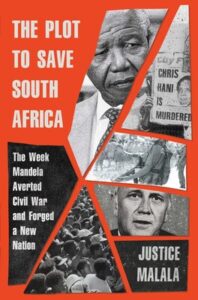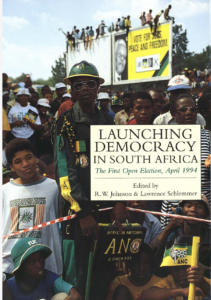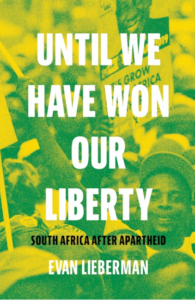 A new scramble for Africa is in full swing between the United States, China, Russia, and Europe, with regional players such as Turkey and the Gulf nations also in contention, El Pais reports:
A new scramble for Africa is in full swing between the United States, China, Russia, and Europe, with regional players such as Turkey and the Gulf nations also in contention, El Pais reports:
Among the countries jostling for position, the U.S. has started to pull out in front. ….Russia’s drive to gain influence in the Sahel and sub-Saharan Africa has been ongoing for some time, with the mercenary Wagner Group spearheading Moscow’s operations. Meanwhile, China rules the roost in terms of trading partners, albeit with increasingly low-key investments. Europe, on the other hand, is lagging behind.
“I notice a greater effort by the major powers to get African countries on their side in order to gain credibility and build ties,” says Ronak Gopaldas, a consultant for the Institute for Security Studies in Pretoria, South Africa. Among the reasons for this, Gopaldas adds, is the new “fragmentation” of the international order that has resulted from the war in Ukraine.
South African President Cyril Ramaphosa has rowed back from a pledge to quit the International Criminal Court, months before he is due to host Russia’s Vladimir Putin who is wanted by the ICC for suspected war crimes, according to reports:
Ramaphosa had said that the ruling African National Congress would aim to repeal South Africa’s membership of the Hague-based court, which hears cases of genocide, war crimes and crimes against humanity. But Ramaphosa’s office said he had made a mistake. “South Africa remains a signatory to the ICC in line with a resolution of the 55th National Conference of the ANC – held in December 2022 – to rescind an earlier decision to withdraw from the ICC,” the presidency said in a statement.
The number of countries condemning Russia has declined, according to some sources. Botswana has edged towards Russia from its original pro-Ukraine stance, South Africa is moving from neutral to Russia-leaning, notes Senior Economist with the International Institute for Management Development (IMD).
 On the eve of the war’s anniversary, South Africa held a joint naval drill with Russia and China, he writes for The Conversation:
On the eve of the war’s anniversary, South Africa held a joint naval drill with Russia and China, he writes for The Conversation:
For South Africa the benefits from the exercise relate to security through capacity building for its underfunded and overstretched navy. More broadly, there are trade incentives for South Africa’s neutral stance. Russia is the largest exporter of arms to the African continent. It also supplies nuclear power and, importantly, 30% of the continent’s grain supplies such as wheat, with 70% of Russia’s overall exports to the continent concentrated in four countries including South Africa.
While South Africa has relatively stronger democratic institutions than most African countries, the absence of a competitive multiparty system exposes it to risks of state capture seen elsewhere on the continent, writes Dr. Joseph Siegle, head of the Africa Center for Strategic Studies’ research and strategic communications program.
This was evident in Russia’s scheme to construct a $76 billion nuclear power facility under President Jacob Zuma, widely seen as a patronage-boondoggle. While the deal was ruled unconstitutional by a South African High Court, Russia continues to seek its revival while sponsoring race-tinged disinformation messages and playing factions of the African National Congress against one another.
Justice Malala, author of The Plot to Save South Africa, explains how Nelson Mandela and F. W. de Klerk kept the country on a path to peace after the 1993 assassination of Chris Hani, NPR reports.
 During a period of rising authoritarian populism around the globe, South Africa stood out as a surprising democratic success story, according to Rorisang Lekalake, a doctoral candidate in political science at the Massachusetts Institute of Technology, and Evan Lieberman, MIT professor of political science and author of Until We Have Won Our Liberty: South Africa After Apartheid.
During a period of rising authoritarian populism around the globe, South Africa stood out as a surprising democratic success story, according to Rorisang Lekalake, a doctoral candidate in political science at the Massachusetts Institute of Technology, and Evan Lieberman, MIT professor of political science and author of Until We Have Won Our Liberty: South Africa After Apartheid.
For example, the 2021 local-government elections were the most competitive yet in the post-apartheid era, defying early predictions of long-term, single-party domination, they write for the Journal of Democracy:
And for more than a quarter-century, citizens have been able to positively influence policy and the quality of governance. To be sure, the country has serious longstanding challenges and burdens, and the prospects for upheaval loom large. Nonetheless, South Africa’s multiracial democracy offers a powerful example of what is possible with well-designed democratic institutions.







